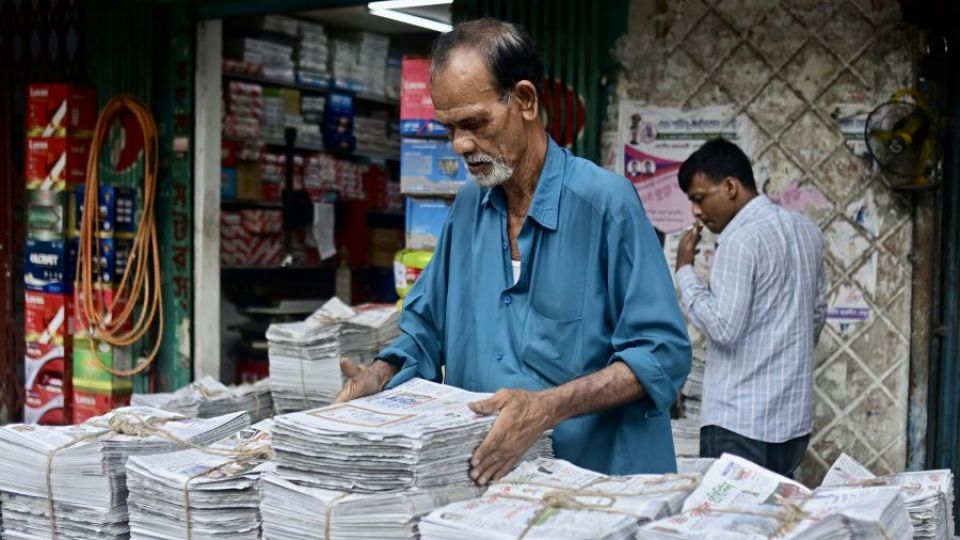February 7, 2025
DHAKA –
- Only 26% read news
- 59% read news on phones
- 37% prefer print newspapers
- Popular consensus is on media independence
Newspapers are losing their appeal across the country, with more readers choosing mobile phones as the preferred device for reading news nowadays, according to a study by the Bangladesh Bureau of Statistics (BBS).
According to its findings released yesterday, 26 percent of respondents said they read newspapers. About 59 percent read news on mobile phones, while 37 percent prefer print newspapers.
Those who don’t read newspapers make up 73 percent of the respondents, with 46 percent saying they do not feel it is necessary.
“Overall, people haven’t lost trust in the media, but interference from political arena, government and influential persons is seen as a major obstacle to publishing objective news,” said Md Sayem Hossain, senior information officer of the Media Reforms Commission, in a press release issued yesterday.
The BBS survey, the first of its kind in the country, was conducted across 64 districts, involving the participation of members from 45,000 households aged 10 and above.
Meanwhile, 65 percent of people watch television. Among the 34.58 percent who do not, 53 percent said they don’t find it necessary.
During a national disaster or crisis, 35 percent of people first look for updates on news channels on television, followed by 28 percent who turn to social media, and 24 percent who ask a trustworthy person.
The survey reveals that the people want to see the media independent, impartial, and free from government and political influence.
Of the respondents, 15 percent said mass media in the country is not free at all, while 23 percent said it is partially free, 24 percent said it is largely free, and 17 percent believe it is fully free.
Among the 6,849 respondents who believe mass media is not free at all, most cited political interference as the main reason, followed by government interference and influence by powerful individuals.
Nationally, 67 percent of people expect mass media to be independent, 60 percent expect media neutrality or impartiality, 37 percent want media to be free from political influence, and 32 percent expect mass media to be free from government influence.
Most people think state-owned Bangladesh Television and Bangladesh Betar should be operated under the stewardship of the government. Over 56 percent of people believe Bangladesh Television should be operated under government control, while 55 percent said the same for Bangladesh Betar.
In the case of radio, 93 percent of respondents said they do not listen to the radio, with 54 percent saying that they do not find it necessary.


